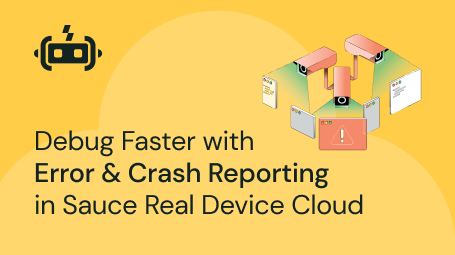
About Qlik
Qlik offers end-to-end, real-time data integration and analytics solutions that help organizations access and transform all their data into value. Qlik helps over 50,000 customers around the world lead with data.
Challenges
Qlik replatformed their core analytics engine to support Linux running in the cloud. During this effort, they changed development and operations process to have an SRE team with engineers directly responding to crashes. This highlighted challenges with their previous crash management setup, which required the customer support team to be the front line of support. These challenges included:
Poor customer experience: On crash, customers were asked to enable crash dump collection and wait until the next crash, then email minidump files.
Hard to understand issues: Multi-threaded and complex software meant that issues could be time and path dependent, not showing up until long after causal conditions.
Complicated triage process: Lengthy detection times and manual matching of crashes to known issues and gauging customer impact made it hard to prioritize debugging work.
Long triage times: Manual processes and first line support staff passing information between customer and engineering were causing slow resolution times.
“Before Sauce Error Reporting (Backtrace), we didn’t even know how often a component was crashing. Now, we have immediate notification for crashes seen during CI as well as in production.”
Senior Staff Architect at Qlik
Life After Sauce Error Reporting
Since partnering with Sauce Labs, the Qlik team is now able to ship higher quality software on schedule by tackling crashes right away, saving time and stress. Here's a look at how Sauce Error Reporting capabilities are driving value for Qlik:
Better customer experience: Sauce Error Reporting automates crash collection across platforms and informs the relevant engineering teams who can begin working on fixes before customers even notice.
Easy triage: Sauce Error Reporting automatically deduplicates, symbolicates, and classifies crashes across dimensions such as the number of customers impacted.
Smooth process: Sauce Error Reporting notifies the right teams via Slack and provides a direct interface into the ticketing system causing fewer handoffs.
Connecting the dots: Sauce Error Reporting collects deep information about crashes and state enabling engineers to trace the path of failure even if it’s over days.
Improved visibility: Sauce Error Reporting provides all the relevant context, environment, call stacks, and other details needed to zero in on causes in one interface.
Confidence to deploy: With thousands of test cases and Sauce Error Reporting deployed throughout the SDLC, crash causing code that would be difficult to find before is now discovered and remedied before it impacts customers.
“Sauce Error Reporting alerted our engine team to a crash that occurred during execution of the client team’s test suite. While the client team just saw a hang, our engine team was immediately alerted to an engine crash and we were able to get in front of it before the client team spent any cycles triaging it themselves.”
Senior Staff Architect at Qlik
Why Sauce Error Monitoring?
The Qlik team initially chose Sauce Error Reporting because it was the only commercial product that supported their stack and platforms. They discovered that Sauce Error Monitoring took the pain and time out of dealing with crashes for not just engineering, but also support staff and customers. They now integrate Sauce Error Reporting into their entire software development, test, release, and production support lifecycle.




